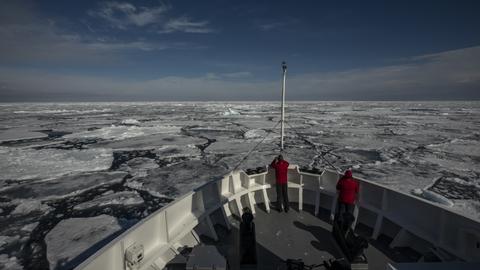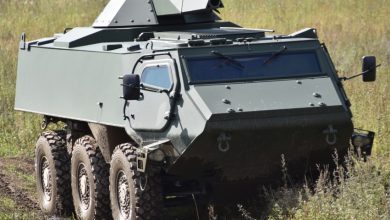Türkiye in the Arctic: A strategic mission with a strong cultural angle

Ankara wants to expand its footprint in the Arctic region, an area with growing geopolitical significance, which is also home to hundreds of thousands of ethnically Turkic people.
In the coming weeks, Türkiye will be completing the ratification process to join the 1920 Svalbard Treaty, which will offer Ankara new opportunities for research and economic activity in the Arctic region.
The Arctic encompasses the lands and territorial waters of eight countries (The US, Canada, Russia, Iceland, Denmark [because of Greenland], Norway, Finland, and Sweden) on three continents. Unlike the Antarctic, the Arctic has no land mass covering its pole, just the ocean. The region is home to some of the roughest terrain and harshest weather on the planet. It is also one of the least populated areas in the world, with sparse nomadic communities and few large cities and towns. Regions are often very remote and lack basic transport infrastructure.
But the Arctic is becoming an area of increasing importance—and competition. The region is rich in minerals, wildlife, fish, and other natural resources. According to some estimates, up to 13 percent of the world’s undiscovered oil reserves and almost one-third of the world’s undiscovered natural gas reserves are in the Arctic. The melting of some Arctic ice during the summer months means new shipping lanes opening, increased tourism, and further natural resource exploration. It is no surprise that Türkiye wants to get more involved in the region—and the Svalbard Treaty offers the perfect opportunity.
The Svalbard Treaty is named after the Svalbard archipelago, located well above the Arctic Circle off the coast of Norway and about 500 nautical miles from the North Pole. Svalbard has a small population of around 2,000 and is home to the northernmost permanently inhabited human settlement in the world. As part of the series of international agreements and treaties that followed World War One, Norway was granted sovereignty over the islands as part of the1920 Svalbard Treaty. However, the terms of the treaty allow any of the treaty’s signatories to have non-discriminatory access to the islands’ fishing, hunting, and natural resources.
These signatories include major powers, such as Russia, the United States, the United Kingdom, and China, as well as countries far from the Arctic, such as Saudi Arabia, South Africa, and even Afghanistan. In total, some 46 countries enjoy equal access to Svalbard’s natural resources—and Türkiye wants to make it 47.
The military use of Svalbard is limited in peacetime due to the restrictions placed on the region under the 1920 treaty, which demilitarized the islands. Even so, this has not stopped the islands from being part of the great power competition in the 21st century.
Russia and China have taken advantage of their access to Svalbard. Russia is present on Svalbard today with its coal mining settlement at Barentsburg. This remote village is only accessible by ship, helicopter, or snowmobile and is home to only a few hundred people. Curiously, considering the remoteness of its location, Barentsburg even hosts the most northern Russian consulate in the world. Today, Barentsburg only produces enough coal to sustain itself. For Moscow, this settlement has always been more about national prestige and not making money.
As a signatory of the Svalbard Treaty, China has conducted scientific research on Svalbard since 2004 at its Arctic Yellow River Station located in Ny Ålesund. This science center is one of several scientific research stations in the Arctic operated by China. Much of the scientific research China focuses on in the Arctic, such as polar high-altitude atmospheric physics and meteorological geology, could have a military application.
No stranger to circumpolar scientific exploration and research, Türkiye’s focus in recent years has been on earth’s southern pole in Antarctica. But when it comes to the Arctic, there are three main reasons why Ankara’s presence in the Arctic is important. First, the region is becoming a focal point of geopolitics. Understandably, as more countries seek greater involvement in the region, Türkiye does not want to be left behind. Secondly, as economic opportunities appear in the Arctic, Türkiye will want to be well placed to be more involved. Finally, the Arctic region is home to hundreds of thousands of ethnically Turkic people, such as the Yakuts and Dolgans. Ankara has been keen to promote a common heritage and culture between Turkic states and people in recent years—the Arctic region is no exception.
President Erdogan and other Turkish policymakers have recognized the growing importance of the Arctic region. In 2015, Türkiye applied for Observer status in the Arctic Council—the world’s premier multilateral Arctic organization. However, with the breakdown in relations between Russia and its fellow Arctic states over the incursion on Ukraine, the Arctic Council has all but stopped functioning. This makes the accession of the Svalbard Treaty the quickest and most direct way for Türkiye to get a stake in the Arctic region.
Global interest in the Arctic will only increase in the years to come. As other nations devote resources and assets in the region to secure their national interests, Türkiye will not want to fall behind.





